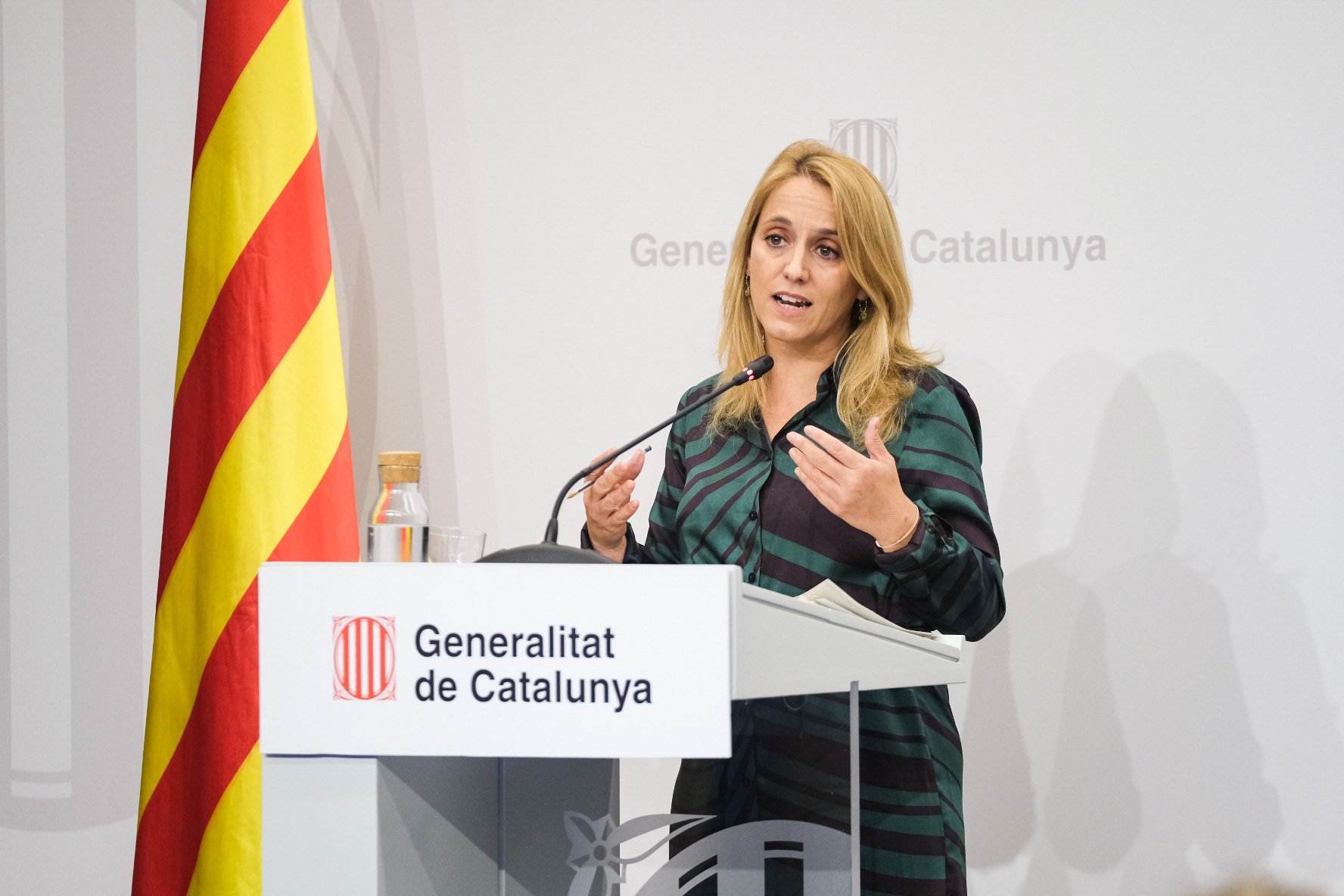The difference between what Catalonia pays to the Spanish state in taxation, and what it receives back from the state in public spending reached almost 22 billion euros in 2021. That is, what is referred to in Catalonia as the fiscal deficit, the shortfall between the tax take and what the state's public sector eventually returns to Catalonia, stood at 20.78 billion euros in 2020 and, in 2021, at 21.98 billion euros. These amounts represent an historical maximum that is equivalent to 9.8% and 9.6%, respectively, of the Catalan GDP. This is the result of the latest calculation of the fiscal balance prepared by the Catalan department of economy and finance, presented this Monday, according to which Catalonia contributed more than 19.3% of the Spanish state's tax income in 2020, and 19.2%, in 2021, and only received 13.7% and 13.6% of public spending in those years.
The previous fiscal balances that were presented were for the year 2019: then the deficit stood at 20.2 billion euros, an amount equivalent to 8.5% of the Catalan GDP. In 2019, Catalonia contributed 19.6% of the state's total income, while it only received 13.4% of the spending carried out in Spain as a whole, according to the data presented in September last year by then Catalan economy minister, Jaume Giró.
Current Catalan economy minister Natàlia Mas emphasized this Monday that the data for 2020 and 2021 constitutes an "historical record". She adds that this shortfall in what the state gives back to Catalonia is equivalent to about 10% of Catalonia's annual GDP and about 50% of the Catalan government's annual budget. In per capita terms, it divides up as 2,831 euros per Catalan, in a year.
Given this data, Mas categorises the situation as "sustained, unjust and deliberate suffication". The description of "sustained suffocation" is justified because Catalonia has been "suffering" from this structural problem for more than 35 years. She also calls it unjust because it "far exceeds the solidarity model"; that is, it is normal that more prosperous territories contribute slightly more to the state than they receive, but this level of fiscal imbalance "punishes" Catalonia. And she also qualifies it as a "deliberate financial suffociation" because it is "constant and systematic, no matter who governs in Spain." She also emphasizes that on top of this, there are several other grievances, such as the outdated status of the autonomous community financing model and the lack of state infrastructure investment in Catalonia.
With regard to the current negotiation with the acting Spanish government for the possible formation by Pedro Sánchez of a new executive, Mas notes that the demands of the Catalan executive focus on three areas, and the fiscal deficit is included in them: "Amnesty, self-determination and welfare, with this last question being linked to resources".
But she harshly criticizes the "opacity and lack of transparency" of the Spanish central government. She mentioned that in May she asked Spanish treasury minister Maria Jesús Montero to provide the data on the fiscal balance, but she did not. The last time the state sent this information was in 2018, and then it was only partial. The minister added that she also requested the balance of the state's accounts with Catalonia, something essential to draw up the Catalan government budget for next year, but she has not received this either.
Moreover, the data looks even worse if it excludes the activity of social security, an area that is not discretionary, and does not depend on the decisions made by taxpayers. Excluding this area, the weighting of the income contributed by the Generalitat compared to the state spending it receives becomes even greater. In both 2020 and 2021, under this measure, Catalonia contributed 19% of income, but only received 9% of state spending.
This difference between the level of tax income contributed to Spain and that of the government spending received is an "historical constant" that has been shown to maintain itself regardless of the financial situation of the Spanish government. This lack of proportion is "responsible" for Catalonia's final negative territorial balance. The report states that, from 1986 to 2021, Catalonia's contribution to the Spanish state's income was 19.4% on average, while the expenditure received during all these years was just 13.9%.

